- Home
- Peter F. Hamilton
Best of British Science Fiction 2016
Best of British Science Fiction 2016 Read online
Best of British
Science Fiction
2016
Edited by Donna Scott
NewCon Press
England
First edition, published in the UK July 2017 by NewCon Press
NCP 133 (hardback), NCP 134 (softback)
10 9 8 7 6 5 4 3 2 1
Introduction copyright © 2017 by Donna Scott
Cover Art copyright © 2017 by Ian Whates
This compilation copyright © 2017 by Ian Whates
“Arrested Development” copyright © 2016 by Joanne Hall, originally appeared in Fight Like A Girl
(Kristell Ink, Grimbold Books).
“Ten Love Songs to Change the World” copyright © 2016 by Peter F. Hamilton, originally appeared in
Now We Are Ten (NewCon Press)
“Beyond the Heliopause” copyright © 2016 by Eric Brown and Keith Brooke, originally appeared in Lightspeed
“The Seventh Gamer” copyright © 2016 by Gwyneth Jones , originally appeared in To Shape the Dark (Candlemark and Gleam)
“Dream-Hunter.” copyright © 2016 by Nick Wood, originally appeared in Omenama #6.
“Shooting the Messenger” copyright © 2016 by Robert Bagnall, originally appeared in Night Lights
(Geminid Press)
“The Lightship” copyright © 2016 Neil Davies, originally appeared in Electric Spec #11
“Ana” copyright © 2016 by Liam Hogan, originally appeared online in Quantum Shorts and in print in Scientific American
“Liberty Bird” copyright © 2016 by Jaine Fenn , originally appeared in Now We Are Ten (NewCon Press)
“Joined” copyright © 2016 by Sarah L. Byrne, originally appeared in Aliterate #1
“Heinrich Himmler in the Barcelona Hallucination Cell” copyright © 2016 by Ian Watson, originally appeared in Barcelona Tales (NewCon Press)
“Taking Flight” copyright © 2016 by Una McCormack, originally appeared in Crises and Conflicts (NewCon Press)
“People, Places and Things” © 2016 by Den Patrick. Originally published in Extinction Event (Jurassic London)
“Staunch” copyright © 2016 by Paul Graham Raven, originally appeared in Cyber World (Hex Publishing)
“Between Nine and Eleven” copyright © 2016 by Adam Roberts, originally appeared in Crises and Conflicts (NewCon Press)
“Ajdenia” copyright © 2016 by Natalia Theodoridou, originally appeared in Nature
“To Catch a Comet” copyright © 2016 by Sylvia Spruck Wrigley, originally appeared in Galaxy’s Edge #19
“How to Grow Silence from Seed” copyright © 2016 by Tricia Sullivan, originally appeared in Now We Are Ten (NewCon Press)
“The Apologists” copyright © 2016 by Tade Thompson, originally appeared in Interzone #266
“Montpellier” copyright © 2016 by Ian Whates, originally appeared in Galaxy’s Edge #19
“Foreign Bodies” copyright © 2016 by Neil Williamson, originally appeared in Thirty Years of Rain (Taverna Press)
“The 10 Second War” copyright © 2016 by Michael Brookes, originally appeared in Crises and Conflicts
(NewCon Press)
“Possible Side Effects” copyright © 2016 by Adam Connors, originally appeared in Shorelines of Infinity #5
“Front Row Seat to the End of the World” copyright © 2016 by E.J. Swift , originally appeared in
Now We Are Ten (NewCon Press)
All rights reserved, including the right to produce this book, or portions thereof, in any form.
ISBN: 978-1-910935-40-8 (hardback)
978-1-910935-41-5 (softback)
Cover art and design by Ian Whates, utilising an image by ‘geralt’.
Text layout by Storm Constantine
2016: An Introduction
Donna Scott
For me, 2016 was the year of Big Things. There was Big Tragedy: the passing of David Bowie and Carrie Fisher bookended a year that seemed to steal so many of our childhood heroes and icons from us. Some of my conversations with fellow science-fiction fans focussed on this sense of cultural loss. It was like watching the Perseid meteor shower on a clear night, as so many bright, star-like sparks dazzled and faded in all too quick succession.
There was Big Politics. What with Brexit and the US election, it seemed that political arguments were more frequent, and the voices involved were shoutier, more polarised, and just, well… Big.
Then there were Big Books. I’d just finished working on Alan Moore’s Jerusalem, a monster of a novel at around 700,000 words in length, when Ian Whates asked me if I would be interested in editing an anthology celebrating the year’s best British Science Fiction. I had to think about that for a moment. Did I really want to take on another Big Thing so soon? Newcon Press may be a little publisher, but it holds a Big Place in my heart, and in the hearts of many lovers of science fiction, as attested to by the many enthusiastic testimonials of its writers and readers. This was a prestige project indeed.
Of course I was delighted to be asked, so I considered the size of the task ahead of me and reasoned with myself that all I had to do really was read a few slim little stories. Just a few hundred little stories. Just as much of the available British short fiction as I could possibly get my hands on. When you break the job down into manageable story-sized chunks it’s really not so onerous. No, really, it isn’t. However, it does take a while to accomplish. Possibly more work than I had envisaged.
Though I began this project in 2016, much of 2017 so far has also been devoted to devouring story after story. Many of the tales I have chosen for this anthology have made me wish they were longer, they’re so good. They have also been an antidote to the overwhelming emotions that the Big Things of 2016 left me with.
I was so amazed at the range and brilliance of so many of the submissions that I knew I would have to be picky. I looked for stories that had great characters, believable voices and a real sense of place, and if the stories also spoke to me about the Big Things of 2016, all the better. Peter F. Hamilton’s story in particular I thought picked up on the reverence we all felt for the musical geniuses we lost last year, though his story has nothing to do with Bowie. And just in case you make a connection with Paul Raven’s story and the recent cyber-attacks on the NHS, I swear I chose his story before all that happened.
So here it is: my selection for the Best British Science Fiction of 2016. These are tales of gritty bare-knuckle fights and unconditional love; of the perils of capitalism; of games within games. Alliances are forged and the status quo is bucked. There is poignancy and pathos, and a few strongly worded letters. The end of the world is nigh, but also very much far from over. There are love songs and light shows, and because we damn well need something light, there are stories to make you smile as well. I hope you enjoy reading them.
It would be remiss of me to finish this introduction without mentioning some of the almost made it stories, though I must fall a little short as there were so many I loved. In particular David L Clements’ “An Industrial Growth” was a wonderful read, which unfortunately we didn’t have room for.
But here’s to 2017. Already another crazy year; the stories are bound to be mind-blowing.
Donna Scott,
Northampton,
May 2017
Arrested Development
Joanne Hall
Kai’s back slammed into the canvas and bounced once, twice, before coming to rest. The air burst from her lungs, sending up a fine spray of blood
from her nostrils. The blurred face of the referee loomed over her. He raised his eyebrows in question or concern, his hand already beating out the countdown.
She allowed herself seven seconds. Seven blissful seconds where she could have been lying on the softest bed in the most palatial Grondhaus, before she forced herself up on her elbows, shaking her head. The murmur of people exchanging bets intensified.
The referee stepped back. He wasn’t permitted to help her to her feet. She had to stand on her own. It was one of the few rules.
Kai’s opponent had retreated to the corner and was glaring at her, yellow eyes beetling beneath her lowered brow-shield. The wire mesh of the cage threw patterned shadows across her green skin. One of her incisors was loose and bloody, and she wobbled it with her forked tongue as she stared. Kai didn’t know her name. The Grond didn’t share their names with humans, and it didn’t matter to Kai anyway. She was just another fight.
“Are you ready?” the referee asked.
Kai wiped the blood from her nose and her eyebrow with the back of her bandaged hand, and bounced on the balls of her feet. “Bring it on,” she said thickly.
The lithe Grond flicked her loose tooth with her tongue in a final gesture of contempt and rose to her feet. Her spine cracked, audible even over the rustles of the crowd. Grond in the front rows, humans pushed to the back and the sides. At full stretch, she was a head taller than Kai, and her tail lashed back and forth as she prowled, waiting for the signal.
At the whistle, the Grond lunged forward. Kai bounced back, leaping high over that lashing tail that thickened to a club at the tip. She had seen other fighters go down with broken ribs or legs after a blow from a Grond tail. Kai had toyed with the idea of getting the enhancement; it was better for balance, an extra weapon. But it would cost every credit she had and more, and she needed to save her cash. There was a trade; there was always a trade. She could add the enhancement, fight better now, and make more money in the short term. Or she could do what she had been doing for the better part of a decade, and invest in the future, a better future. And not just for her.
The Grond stumbled, momentarily thrown by the force of the blow that didn’t connect. Kai was on her in an instant, raining punches against the hard carapace of her barrel chest. The Grond pushed at her with stout arms, seeking an opening. She jabbed in hard against Kai’s ribcage, a series of sharp explosions that left her reeling and drooling.
The crowd roared, or it could just have been the blood rushing in her ears. Her foot slipped on the canvas and she lurched forward. Recovering from the slip, she caught the Grond around the waist, barrelling into her and pushing her back against the wire of the cage. The Grond’s feet scraped against the canvas as she tried to lift one leg to claw Kai’s stomach. Talons raked her bare thigh, scoring twin lines of fire from groin to knee.
Kai pressed harder, breathing in her opponent’s sweat, her musty lizard scent. The fingers of her left hand dug into the flesh of the Grond’s back, slick now with loose scales as she shed in fear. Kai was inside her grip now, pressed tight as a lover, shifting so her elbow ground against the Grond’s exposed throat. She pushed the Grond back, her yellow eyes bulging, feet skittering for purchase as the metal of the cage dug into the flesh of Kai’s wrist.
Kai clenched her teeth and hung on, muscles burning from the strain.
The Grond made a choking sound. Drool hung in strings from her lipless mouth, and her eyes popped red as thousands of tiny blood vessels burst. Kai pushed harder, crushing her windpipe, willing her to break.
The Grond was as tense as wire and then all at once Kai felt her snap, muscles falling into slackness. She stepped back and the Grond slumped forward, like a tree toppling. Kai slammed a fist into the back of her head as she went down, just to make sure.
Kai held her breath for the long ten seconds it took the referee to count the Grond out, exhaling only as he took her arm and raised it high above her head. The hordes of Grond in the pricey seats hissed and flicked their tongues, the humans in the cheap seats cheered, money changed hands and Kai accepted the applause. She felt no particular joy, only satisfaction at another job survived without serious injury, another day lived through.
“Still lucky,” she breathed.
By the time the referee released her, the defeated Grond had crawled away, back to her own team and the nurture of her people. Kai had no people in the arena.
By the time she lowered herself out of the cage, wincing as the adrenaline wore off and the pain kicked in, the hall was almost empty. The punters had paid their entrance fee, placed their bets and won or lost, and now they were streaming out into the afternoon, back to their Grondhaus or to their own towns. Not to the Delphi. No one who lived in the Delphi could afford to watch fights.
She crunched across the debris, the sticky floor and discarded plasteen cups still holding dregs of brew. They dug into her bare feet, bloodied from the wound in her thigh. There was no one waiting in the changing rooms to greet her, no one to take her gum shield and wipe down her wounds with astringent, or congratulate her on her win. She didn’t need them. She was used to acting alone. Rumour had it the Grond changing room had hot water, but in here she was lucky to be able to thump a lukewarm trickle from the taps. Still, it beat her capsule in the Delphi, and the stanchion pipes on the street outside that were often dry.
Kai showered as best she was able, scraping the sweat and blood from her skin with a sliver of hardened soap and drying herself down with a rough gym towel that smelled like the inside of her shoes. Her trousers and vest lay on the bench where she had abandoned them before the fight and she pulled them on, wrinkling her nose as she caught a whiff of the ingrained stench in the armpits and the groin.
She stood up, brushing herself down, running her hands over hair cropped close to her scalp, to dry off the last of the water. Then she headed upstairs to the booth to get her money.
The female Grond had reached the booth before her, so Kai hung back until she left, the door almost closing on her club tail. There was no point taunting a defeated opponent. The Grond would most likely be back. So would Kai.
Sheeny sat in the booth, thick fingers flicking though the take, bottom lip pushed out in eternal petulance. He looked up as Kai’s shadow fell across him, and grunted.
“You did OK out there today.”
“Thanks.” She didn’t want to stay and chat with him. The smell of grease rising from his skin coated her tongue and made her long for a drink to wash it away.
“Always nice to see someone get one up on a Grond. Even a little one like that.”
“I’d take on a big one if I had to.” The Grond pitted their fiercest male fighters against each other. They didn’t waste them on humans. The fights would be over too quickly.
Sheeny chuckled, his crooked eye swivelling away from her. “I’ve no doubt you would. Here’s your money.”
He handed over a tatty brown envelope. Kai made a point of opening it right there in the foyer.
“What’s the matter? You don’t trust me?” His lip stuck out even further, and his weasel tongue flicked over it.
Kai counted the cash. “It’s fifty short.”
“Yeah, well, things are tight this week…”
“Grond shit. Where’s my money, Sheeny?”
“Are you sure? Count it again. That bump on the head might have made you dizzy – erk!” His words were choked off as she lunged across the barrier and seized him by the throat.
“Don’t fuck with me, Sheeny. I’m not in the mood.”
He squirmed. She pressed tighter, grimly satisfied to see his eyes bulge in fear. She rooted on the desk and grabbed a couple of notes without looking.
“Hey, that’s too much!” He could squeak for his precious credits even through her grip on his windpipe.
“Call it a fine for messing me about.” She reached into his breast pocket and extracted a packet of smoke sticks. “I’ll take these too.” She pushed him back, slamming him into the wooden wa
ll of the booth. “Pleasure doing business with you, Sheeny.”
“Pleasure’s all yours,” he grumbled, massaging his throat. “That was my last packet. Are you in tomorrow?”
“Not until next week.” She had tried to get a quicker fight but none were available. The extra money would help tide her over until then.
As she turned away he called after her. “How long are you going to keep this up?”
“Keep what up?”
He snorted. “You’re what, thirty? You won’t be able to fight forever, even if you think you can. Then what are you going to do?”
She turned back, waving the envelope. “This proves I can still fight.”
“For how long, Kai?”
“For as long as it takes.”
“As long as it takes for what?”
With a harsh laugh, she let the door slam in his frustrated, swivelled-eyed face. She could still fight, and win. She was still lucky. Luckier than some, anyway.
Outside, she leaned against the corrugated iron wall of the building and lit one of Sheeny’s sticks, drawing the smoke deep into her lungs and holding it there until she felt the narcotic buzz through her system. She breathed out, carefully stubbed the smoke out on the wall and stashed the rest of it in her pocket for later. It would keep her jazzed for the two-hour walk home.
The route back to the Delphi, for much of its length, took her down the narrow track between the Grond Metrotube and the chain-link fence that marked the boundary of the space port. Only the Grond were allowed to ride the express transit that bypassed the Delphi. To protect them from having to see the areas humans were restricted to, the whole length of the track was sheathed in a curved hemisphere of slate-grey metal. The outside of the tunnel was decorated along its length with holo-graffiti, layer upon layer of it, tracking the aspirations and frustrations of the generations of humans that had walked this same track. Political slogans against the Grond, overlaid with tributes. Gorf and Natty RIP, in eight-foot high neon letters, festooned with birds and snakes and vines that fluttered and writhed in and out of the shimmering letters. The paint smelled fresh, and she wondered who Gorf and Natty were, and what they had done to earn such a tribute. Had they been dissidents, or creatives? Someone’s son, someone’s brother, someone’s little girl? Either way they were gone now, but their memorial was glorious, love for them emblazoned on a wall to remind the world that they had lived.

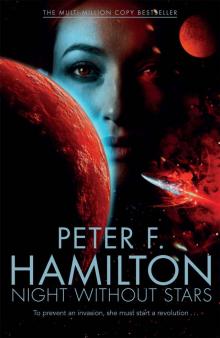 A Night Without Stars
A Night Without Stars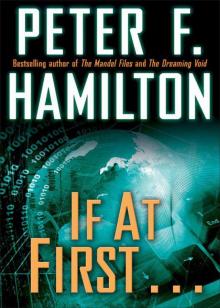 If at First . . .
If at First . . .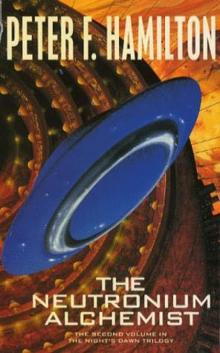 The Neutronium Alchemist
The Neutronium Alchemist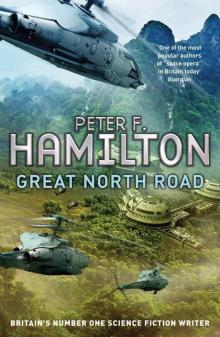 Great North Road
Great North Road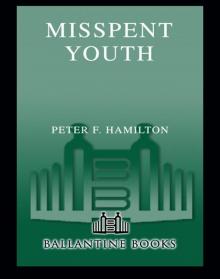 Misspent Youth
Misspent Youth Pandora's Star
Pandora's Star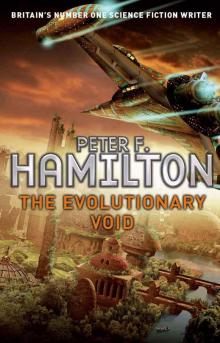 The Evolutionary Void
The Evolutionary Void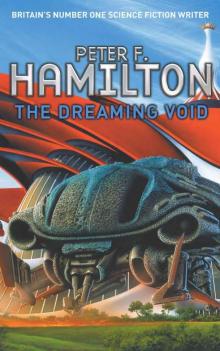 The Dreaming Void
The Dreaming Void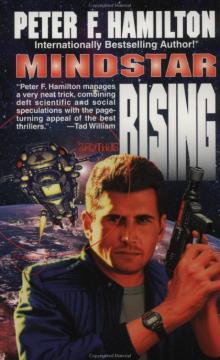 Mindstar Rising
Mindstar Rising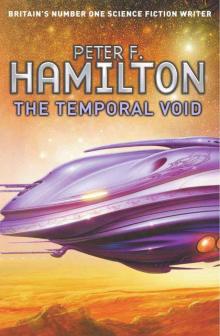 The Temporal Void
The Temporal Void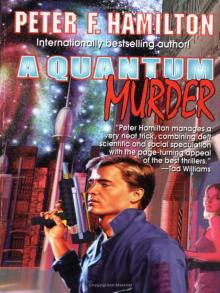 A Quantum Murder
A Quantum Murder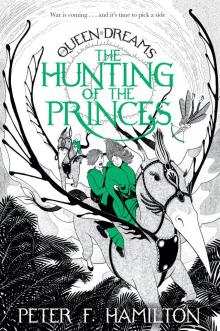 The Hunting of the Princes
The Hunting of the Princes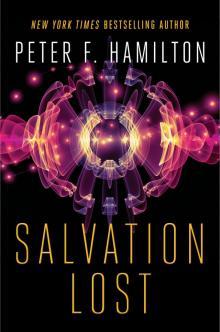 Salvation Lost
Salvation Lost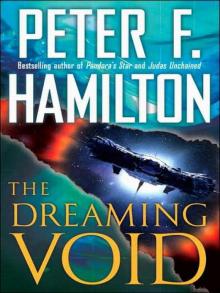 The Dreaming
The Dreaming Salvation
Salvation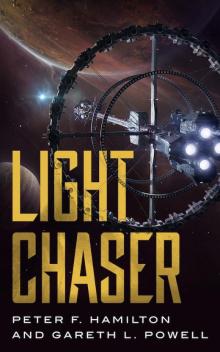 Light Chaser
Light Chaser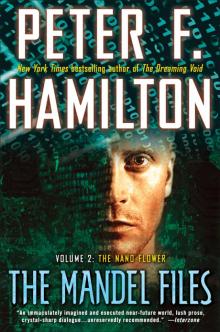 The Mandel Files, Volume 2: The Nano Flower
The Mandel Files, Volume 2: The Nano Flower![The Saints of Salvation [British Ed.] Read online](http://i1.bookreadfree.com/22/the_saints_of_salvation_british_ed__preview.jpg) The Saints of Salvation [British Ed.]
The Saints of Salvation [British Ed.]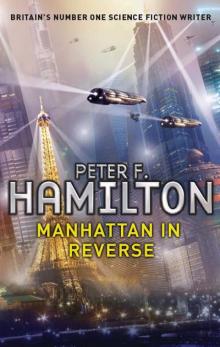 Manhattan in Reverse
Manhattan in Reverse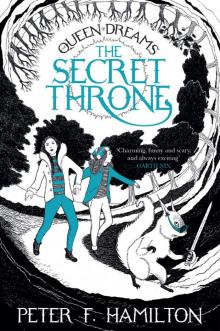 The Secret Throne
The Secret Throne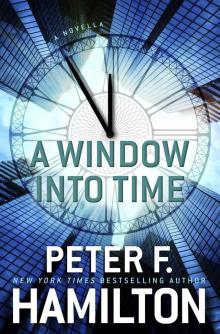 A Window Into Time
A Window Into Time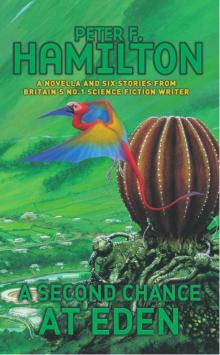 A Second Chance at Eden
A Second Chance at Eden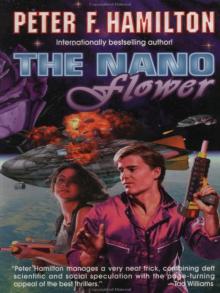 The Nano Flower
The Nano Flower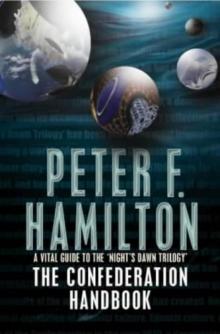 The Confederation Handbook
The Confederation Handbook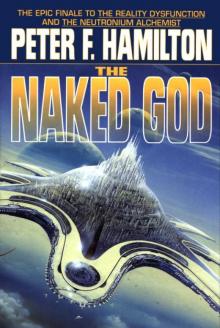 The Naked God
The Naked God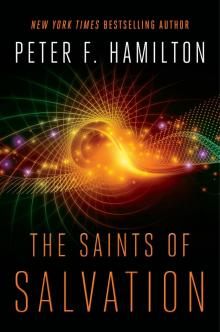 The Saints of Salvation
The Saints of Salvation The Void Trilogy 3-Book Bundle
The Void Trilogy 3-Book Bundle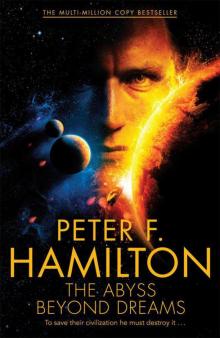 The Abyss Beyond Dreams
The Abyss Beyond Dreams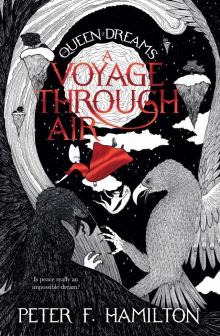 A Voyage Through Air
A Voyage Through Air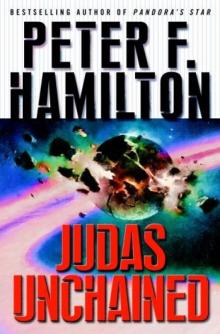 Judas Unchained
Judas Unchained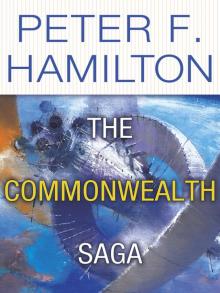 The Commonwealth Saga 2-Book Bundle
The Commonwealth Saga 2-Book Bundle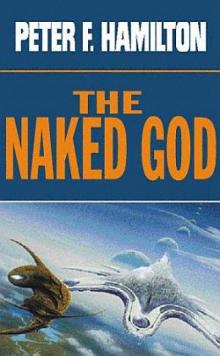 The Naked God - Flight nd-5
The Naked God - Flight nd-5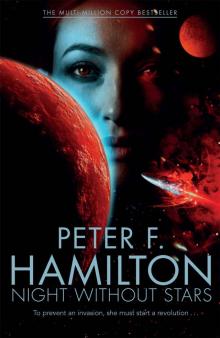 Night Without Stars (Chronicle of the Fallers Book 2)
Night Without Stars (Chronicle of the Fallers Book 2)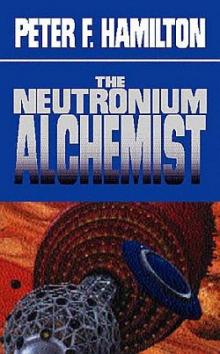 Neutronium Alchemist - Conflict nd-4
Neutronium Alchemist - Conflict nd-4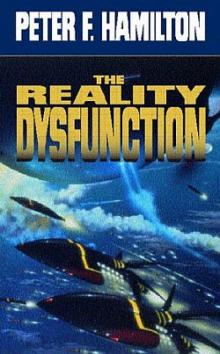 Reality Dysfunction - Expansion nd-2
Reality Dysfunction - Expansion nd-2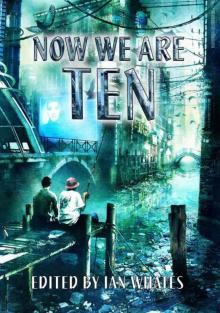 Now We Are Ten: Celebrating the First Ten Years of NewCon Press
Now We Are Ten: Celebrating the First Ten Years of NewCon Press Neutronium Alchemist - Consolidation nd-3
Neutronium Alchemist - Consolidation nd-3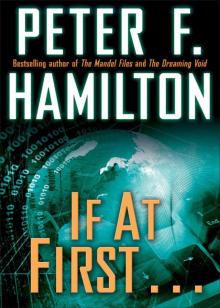 If at First . . . (Short Story)
If at First . . . (Short Story)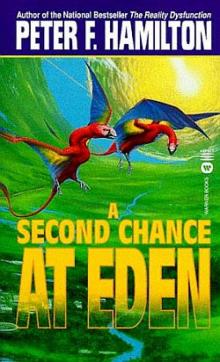 A Second Chance at Eden nd-7
A Second Chance at Eden nd-7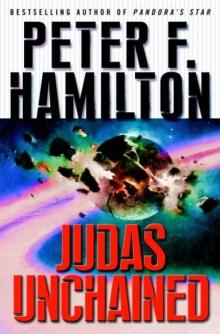 Judas Unchained cs-2
Judas Unchained cs-2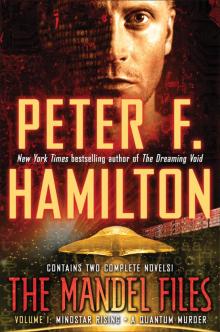 The Mandel Files, Volume 1
The Mandel Files, Volume 1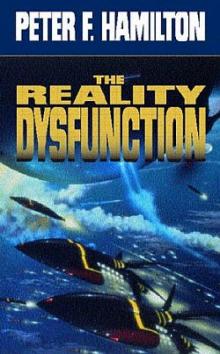 Reality Dysfunction — Emergence nd-1
Reality Dysfunction — Emergence nd-1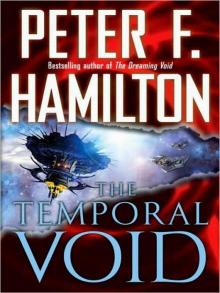 The Temporal Void (ARC)
The Temporal Void (ARC)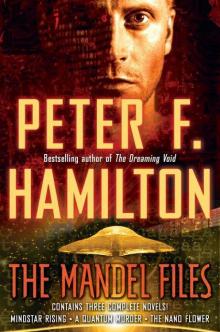 The Mandel Files
The Mandel Files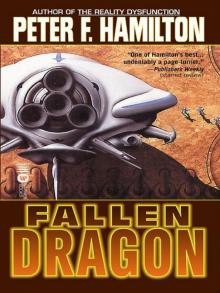 Fallen Fragon
Fallen Fragon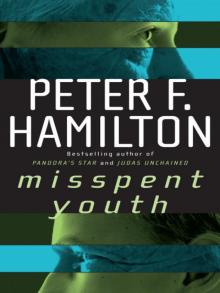 Misspent Youth (commonwealth saga)
Misspent Youth (commonwealth saga)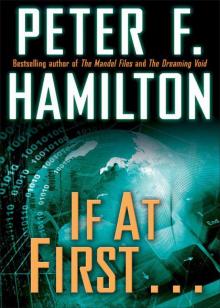 If at First...
If at First... Best of British Science Fiction 2016
Best of British Science Fiction 2016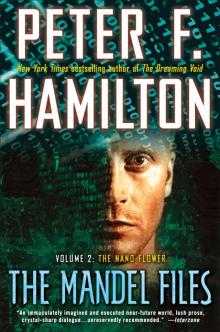 The Mandel Files, Volume 2
The Mandel Files, Volume 2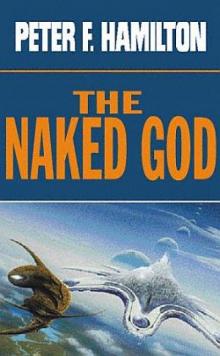 The Naked God - Faith nd-6
The Naked God - Faith nd-6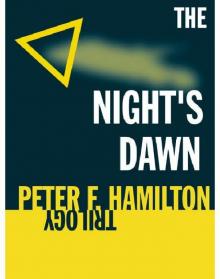 The Night's Dawn Trilogy
The Night's Dawn Trilogy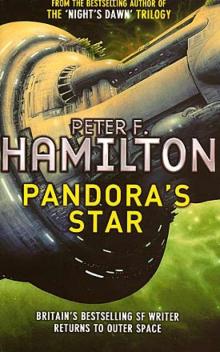 Pandora's Star cs-2
Pandora's Star cs-2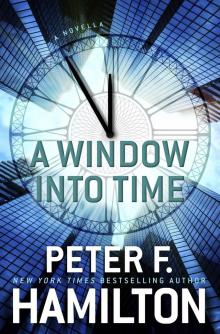 A Window into Time (Novella)
A Window into Time (Novella)